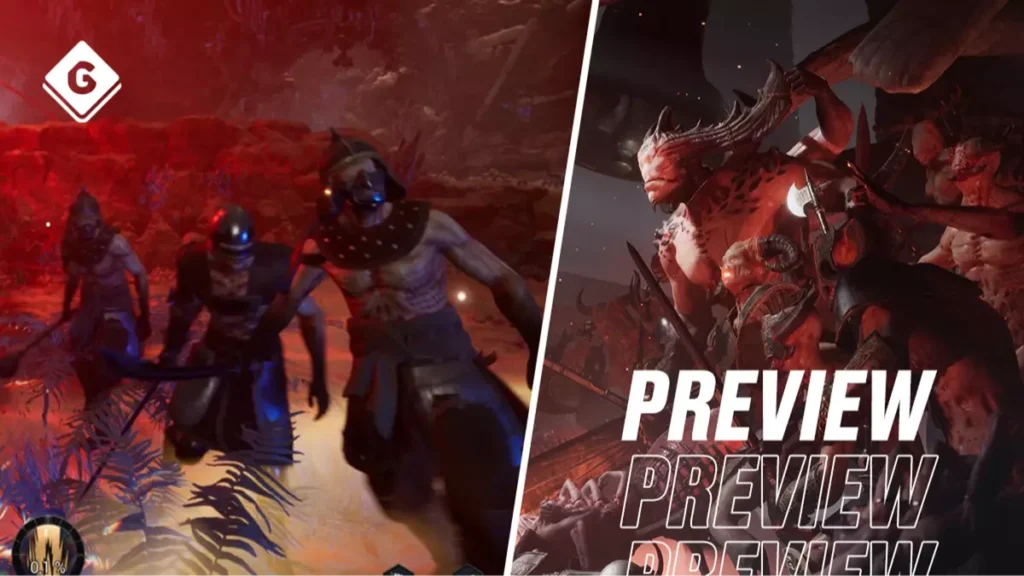
Daimon Blades adds a fun twist to a genre that’s seriously crowded, and for that alone I’m keen to play it again.
The game’s original release date was unfortunately pushed back to this month but when I first heard the news I wasn’t worried, as my demo at Gamescom felt promising enough.
Daimon Blades is a first-person-slasher game from Streumon Studio, that you play either by yourself or online with friends.
Combining combat that reminded me of The Elder Scrolls V: Skyrim and dungeon-crawling roguelike gameplay, players will embark on several explorative missions into depths unknown, slicing and smashing anything that gets in the way.
When I played it at Gamescom I played by myself and like I tend to do in most games that give me a similar option I picked the class that gave me the biggest sword possible, which allowed me to unleash slow but devastatingly powerful attacks that cleaved through enemies well.
Gameplay-wise it’s nothing to shout about, as you are just going from room to room dispatching whatever’s living there before moving onto next. Treasure chests are randomly scattered throughout and any rewards you find can be put to use in the game’s hub area for permanent upgrades and special effects.

What sets the game apart from others in its genre though are the weapons themselves, as the developers explained to me that each weapon is basically alive, and only through nurturing your relationship with them will they be of any use to you during battle.
In my mind this makes Daimon Blade a dating-sim but with armaments rather than people, and I kind of love that angle.
The more enemies you slay with a weapon the happier it’ll be, and each weapon has its own distinct playstyle and variety of abilities. During a run it’ll grow stronger which is where the roguelike element comes into play, but as stated before permanent upgrades can be acquired in-between runs.
An example provided to me was choosing an ice upgrade for a weapon that uses fire. The entity calling your sword its home isn’t going to take kindly to that and so it’ll “play tricks” or generally sabotage you throughout the run until you get it back on side. Negative effects include increasing the “corruption” bar, which fills the more you die during a run. Once it’s filled you’re down for the count and need to start over.
Unfortunately I didn’t have enough time to really test this relationship mechanic out, but I can’t say I’m not interested in exploring it further.
As a core mechanic I think it’s incredibly strong, though I’m concerned potential players will shy away from Daimon Blades given its oversaturated genre.




This post about Daimon Blades sounds intriguing! It’s great to see new ideas being introduced in such a competitive genre. Looking forward to seeing how it stands out with its unique twist!
I completely agree! It’s refreshing to see a game that brings something unique to the table. The concept of possessed weapons adds an interesting layer to gameplay, which could really set it apart from others in the genre. I’m curious to see how that mechanic will evolve throughout the game!
Absolutely! The concept of possessed weapons adds an intriguing layer to gameplay, allowing for more strategic choices. It’ll be interesting to see how players adapt to this mechanic in their play styles!
Appreciate this post—concise and informative.
Thank you for your kind words! It’s great to see a game that brings a fresh angle to a familiar concept. The idea of possessed weapons could really add depth to gameplay, allowing for unique strategies and character builds.
You’re welcome! I agree that a fresh perspective can really breathe new life into a genre. I’m also intrigued by how the game incorporates the concept of possessed weapons, which could lead to some unique gameplay mechanics and storytelling opportunities.